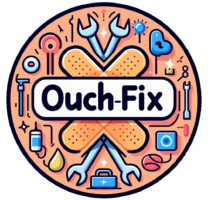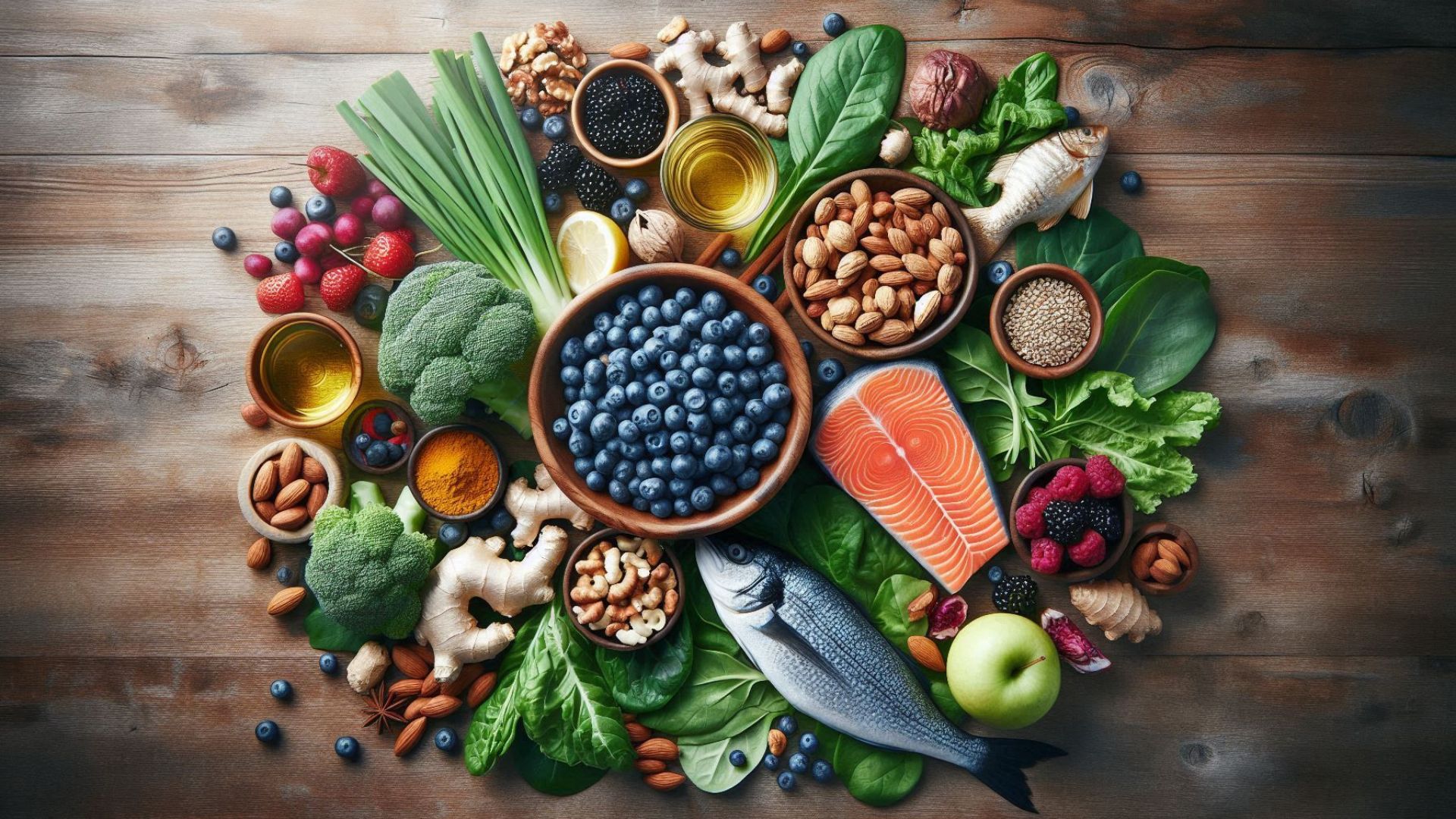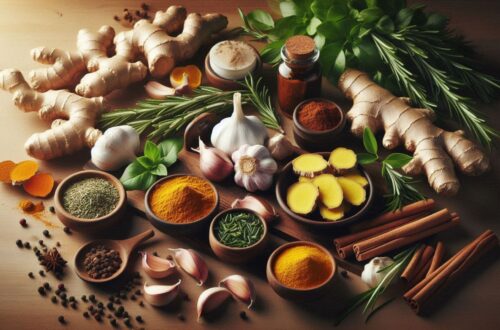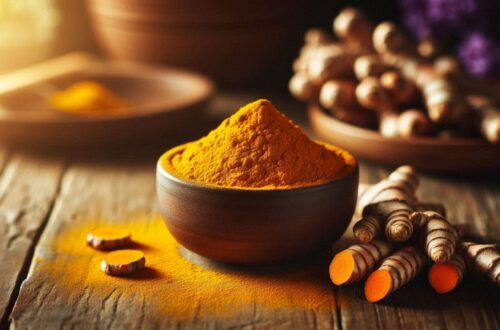Pain—whether short-term or long-term—affects millions of people worldwide. Many rely on medication for relief, but using it for too long can cause side effects and even lead to dependency. So, can changing your diet help manage pain naturally? Research suggests that certain foods can reduce inflammation and support overall health, making a real difference in how you feel.
Understanding Chronic Pain
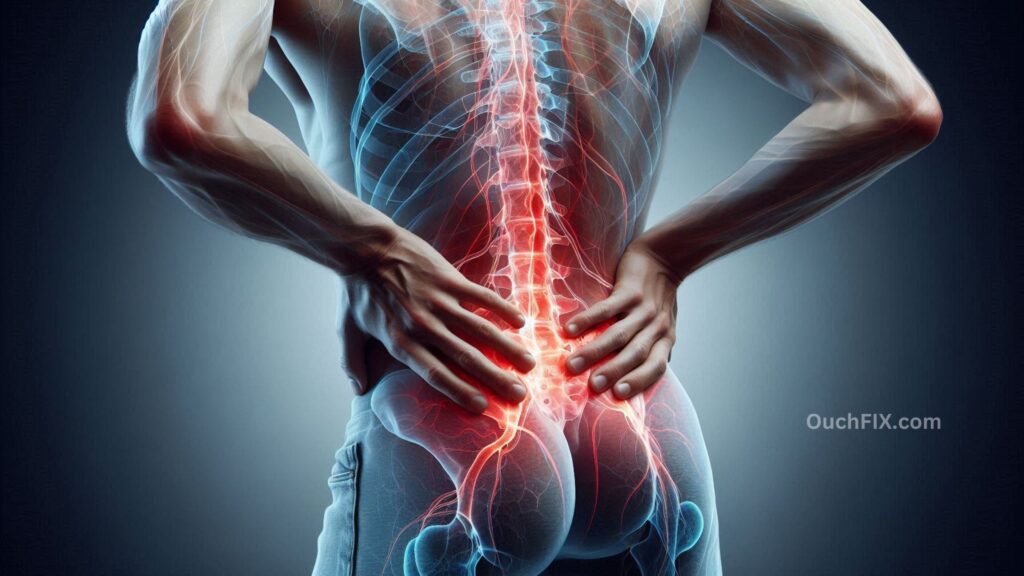
Chronic pain can come from conditions like arthritis, migraines, fibromyalgia, or nerve damage. A major cause of ongoing pain is inflammation, which can get worse with unhealthy eating habits.
How Food Affects Pain
What you eat has a direct impact on inflammation in your body. Some foods make pain worse, while others help calm it down. Nutrients like omega-3 fatty acids, antioxidants, and polyphenols have powerful anti-inflammatory effects and can help manage discomfort.

Also Read: Which Natural Supplements Help Ease Muscle Soreness?
Best Anti-Inflammatory Foods for Pain Relief
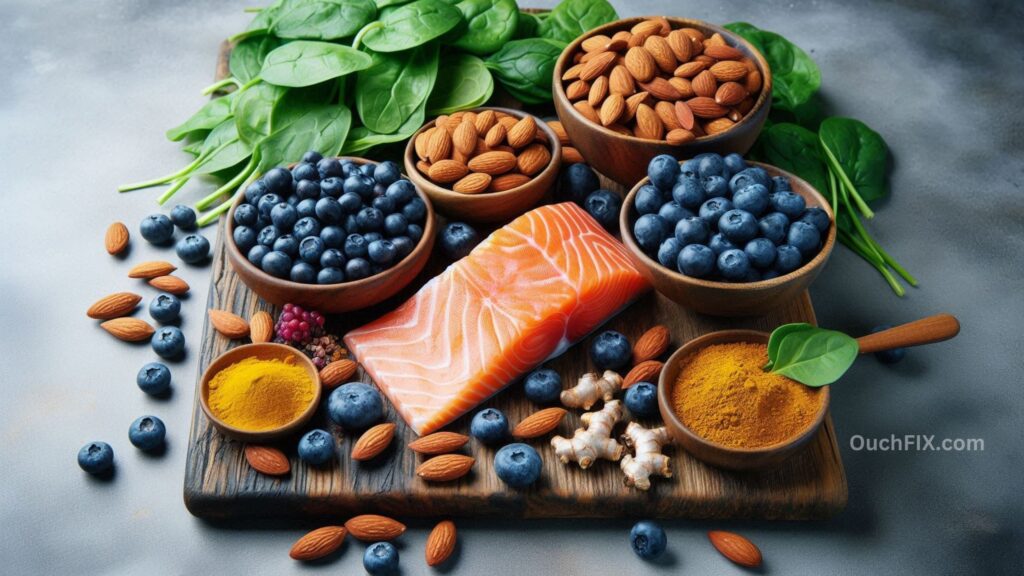
Fatty Fish and Omega-3s
Salmon, sardines, and mackerel are loaded with omega-3s, which fight inflammation and help reduce pain.
Leafy Greens and Antioxidants
Spinach, kale, and Swiss chard are packed with antioxidants that protect your cells and reduce inflammation.
Nuts and Seeds
Almonds, walnuts, and flaxseeds provide healthy fats and compounds that help fight pain naturally.
Berries and Polyphenols
Blueberries, strawberries, and raspberries contain polyphenols, which have been shown to lower inflammation and ease pain.

Also Read: What are Safe Natural Remedies for Arthritis Pain?
Herbs and Spices That Work Like Natural Painkillers
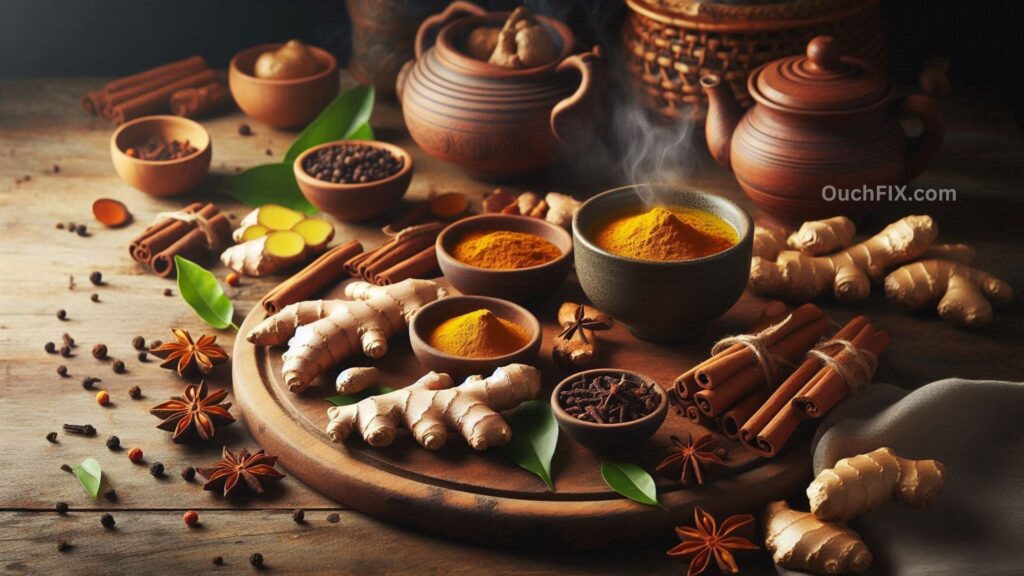
Turmeric and Curcumin
Curcumin, the active ingredient in turmeric, is a strong anti-inflammatory and can work as well as some pain medications.
Ginger’s Pain-Relieving Power
Ginger contains gingerol, a compound with pain-relieving effects similar to over-the-counter painkillers.
Cloves and Eugenol
Eugenol, found in cloves, has been used for centuries as a natural remedy for pain relief.
Other Key Factors in Pain Management

Staying Hydrated
Not drinking enough water can lead to muscle cramps and stiff joints. Staying hydrated with water, herbal teas, and electrolyte-rich drinks can help reduce discomfort.
Gut Health and Pain
A healthy gut can lower inflammation and boost your immune system. Eating probiotic-rich foods like yogurt, kefir, and sauerkraut supports gut health and may help with pain management.
Foods That Make Pain Worse
Some foods can increase inflammation and make pain worse, including processed foods, refined sugars, and artificial additives. Cutting back on these can make a big difference in how you feel.
A Balanced Diet for Pain Relief
A well-rounded diet with plenty of protein, healthy fats, and complex carbs supports overall health and can help manage pain naturally.
Key Nutrients for Pain Management
Certain vitamins and minerals play a crucial role in keeping pain in check. Magnesium, vitamin D, and B vitamins are essential for muscle and nerve function, and a deficiency in these can make pain worse.

Also Read: How can I Relieve Joint Pain at Home with Natural Ingredients?
Diet Plans That Help Reduce Pain

The Mediterranean Diet
This diet is rich in whole foods, lean proteins, and healthy fats and has been linked to lower inflammation and less pain.
Intermittent Fasting
Fasting can help lower inflammation and promote cell repair, which may ease chronic pain symptoms.
Beyond Diet: Other Lifestyle Changes for Pain Relief
While diet plays a big role, it’s not the only factor. Regular exercise, good sleep, and stress management are also key to keeping pain under control.
